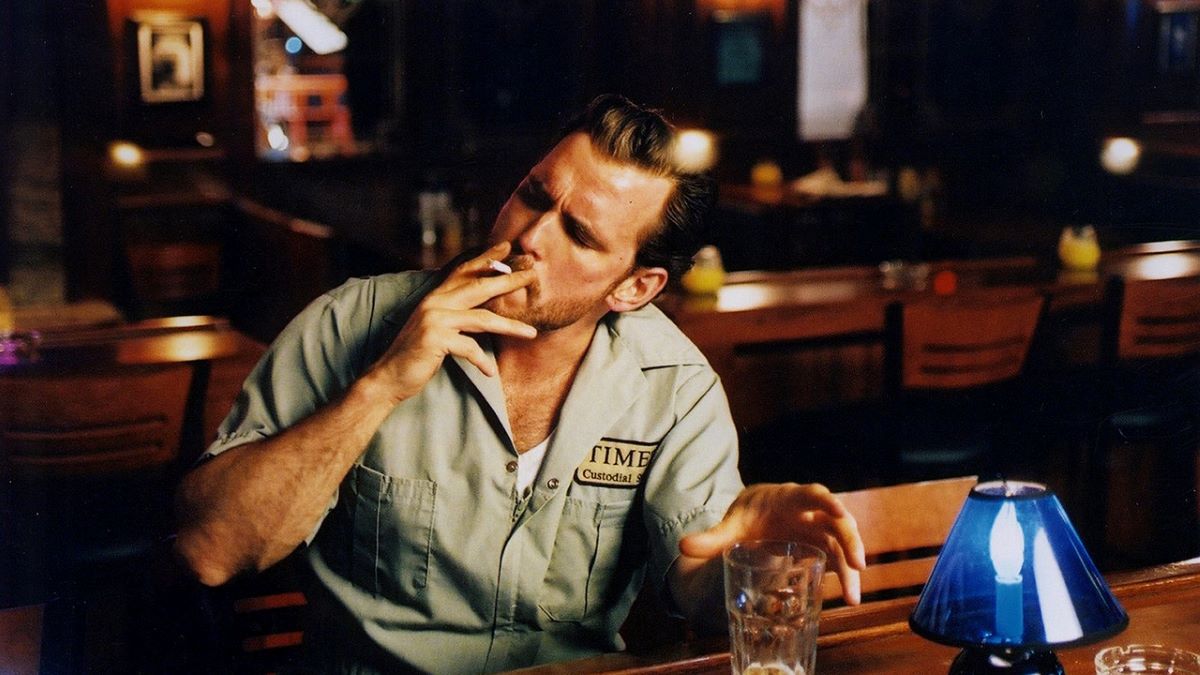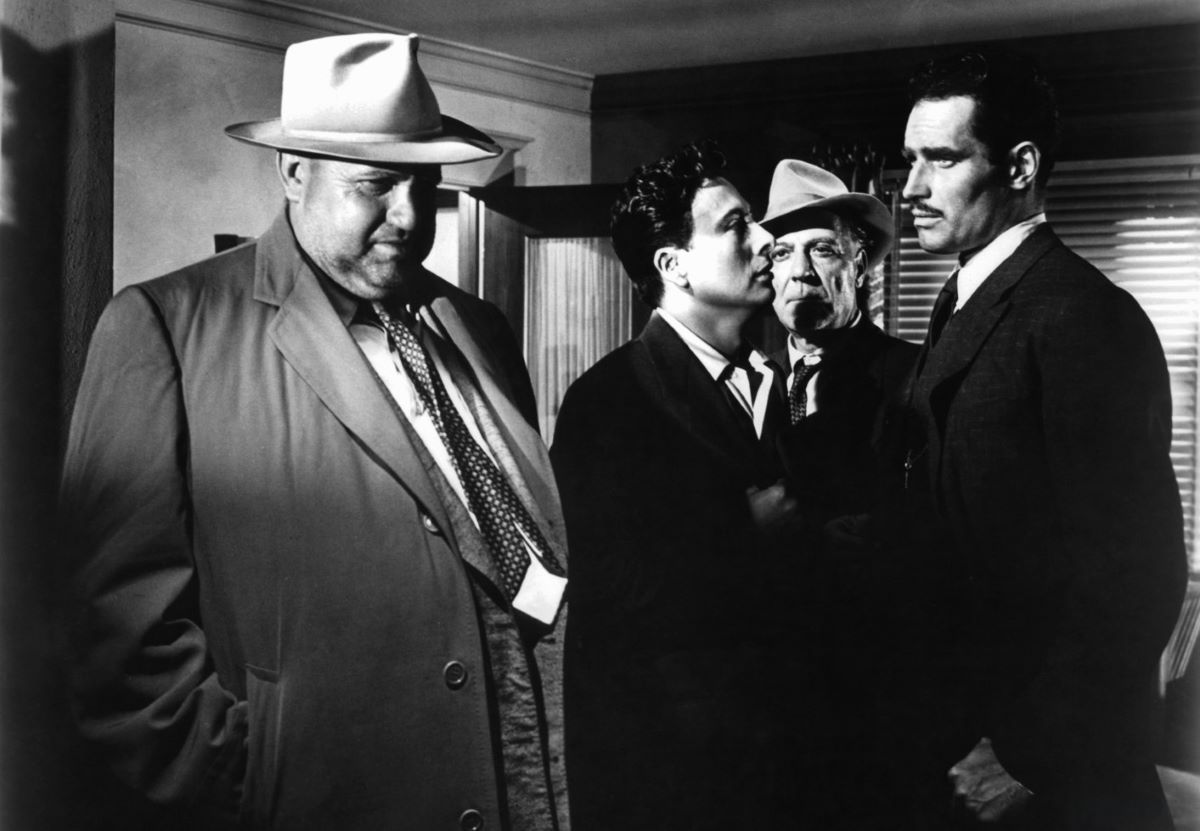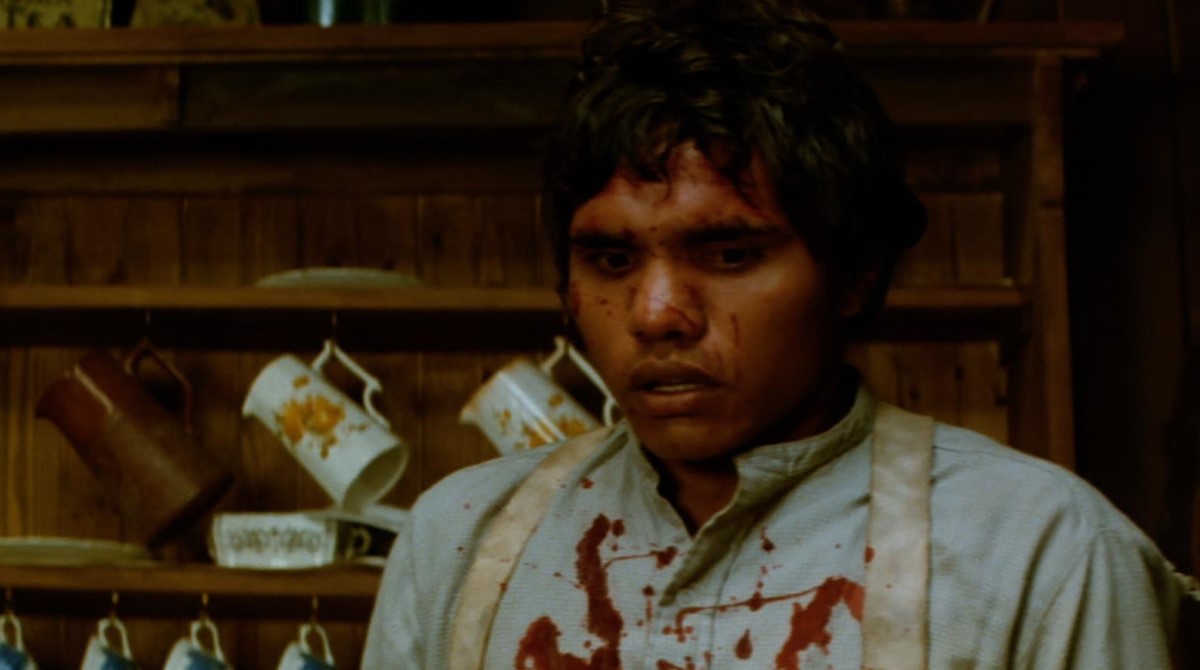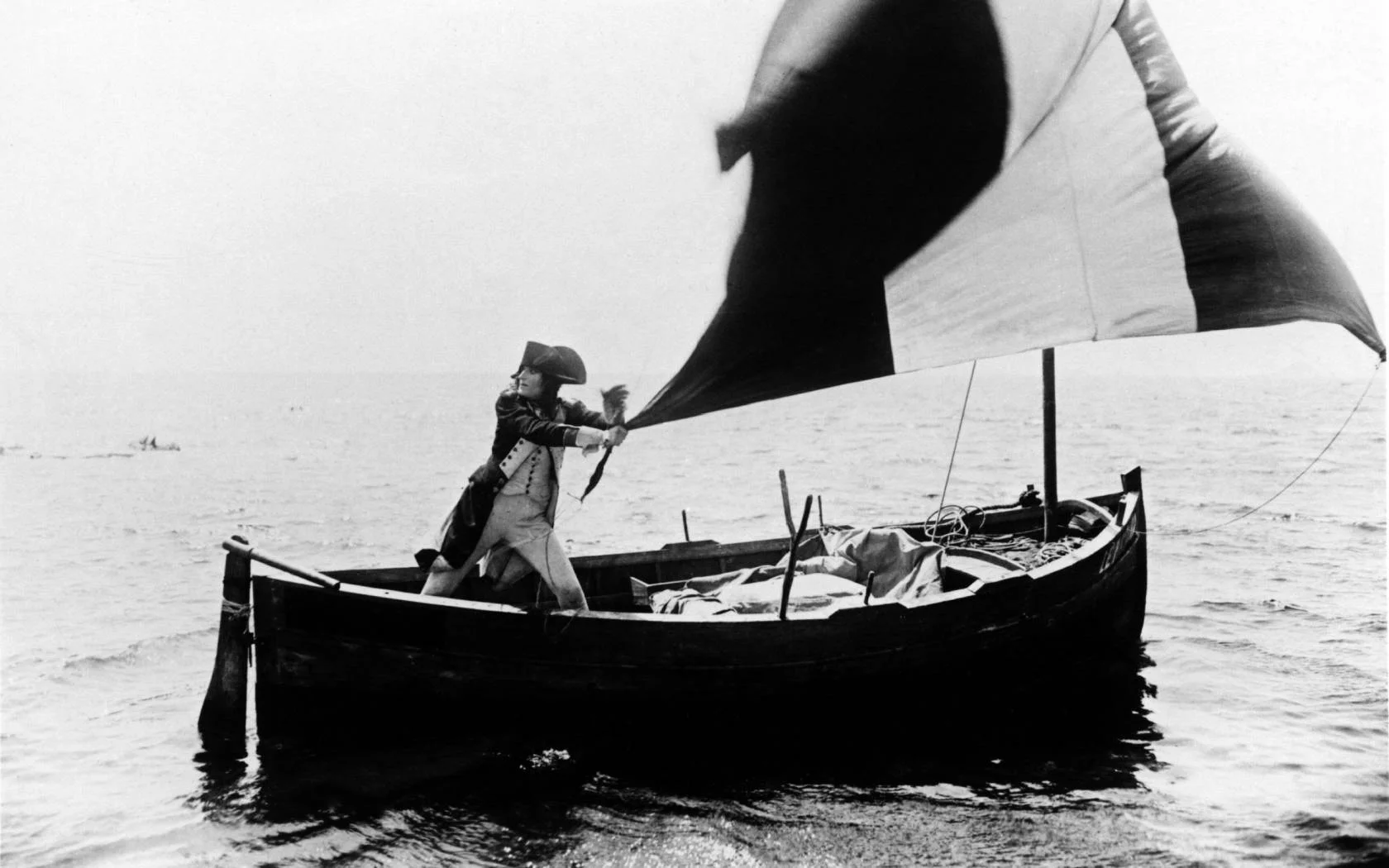On March 9th, thirty years ago, Charles Bukowski left us. His works, including novels, stories, and poems, are widely known. One doesn’t need to have reluctantly worked for years at the post office, or spent a good half of their life clinging to a bar counter like his alter ego Henry Chinaski, to appreciate his writing: Bukowski’s talent makes us see his characters, if not as likable, at least as our brethren, with all their drifting existences. The cinema, through documentaries and adaptations, has shown varied interest in his work: Tales of Ordinary Madness by Marco Ferreri, Barfly by Barbet Schroeder (screenwritten by Bukowski himself), Crazy Love by Dominique Deruddere (the writer’s favorite), and Factotum by Bent Hamer.
* * *
Factotum by Bent Hamer
To Become a Writer
by Alberto Morsiani
Henry Chinaski works delivering for an ice factory, but one day he goes into a bar to drink, the ice melts, and he gets fired. He then tries being a taxi driver but loses the job again for being found drunk. Next, he works at a pickle factory but doesn’t last long there either. Meanwhile, in addition to drinking and smoking, Hank tries to get his writings published: he corresponds, for example, with the magazine “Black Sparrow”. He meets a messed-up woman, Jan, and starts living with her, a relationship that, besides sex, includes drinking and fighting. He finds a job at a bicycle shop but often leaves with a colleague to bet on horse races, another passion of his. Things go well, so much so that they start holding the colleagues’ bets. But the sudden prosperity ends his relationship with Jan who, she says, prefers him “poor and humble”. Naturally, he gets fired from the job because he does nothing. He meets another woman, Laura, in a bar, and they hang out with a mature, wealthy man, Pierre, who supports her and owns a yacht they party on. He also leaves Laura and goes to see his parents, but his father kicks him out. He finds yet another job at a shoe factory, and looks for and finds Jan who is working as a waitress at a hotel. After being fired as usual, he unsuccessfully looks for a job as a reporter at a newspaper, but at most, they let him do cleaning in the editorial office. Naturally, instead of working, he goes to the bar and gets fired immediately. Jan decides to leave him for good, but Hank, in the end, receives news that “Black Sparrow” has decided to publish one of his stories.
The laborer Hank Chinaski takes the van and heads out slowly for the ice deliveries to various local spots, but instead, he goes into a bar and drinks a mug of pale beer. Meanwhile, the ice naturally melts, and he gets fired upon his return to the company. It’s the first firing in a long series. The laconic opening, a freeze frame of the film shows the zero degree of vital temperature at which the protagonist seems to have settled, with a certain comfort: he works for companies and warehouses he absolutely doesn’t care about just to afford what he truly is interested in: drinking, betting on horse races, picking up battered women without roots like him, and, above all else, writing stories and poems that no one seems to want to publish. Moreover, Hank is the first to want to quit the job he found when he realizes it can harm his sex life and that “one fucks better unemployed”. Precisely because of the protagonist’s inability (played by a perfect Matt Dillon, with the right dose of stolidity, common sense, and humor) to remain employed for long, Bent Hamer’s film contains more truth about the world of work as it really is than hundreds of illusionistic mainstream American films put together, with their fancy jobs and luxurious gadgets: here, for example, the unheard-of interiors of a pickle factory, or one that makes bicycle components, or shoes.
The autobiographical novel by Charles Bukowski, Factotum (1975), was the first to be translated and published in Italy four years after the American edition, for SugarCo: the myth of the writer/drunken outcast was blooming precisely in those years. Hank Chinaski’s odyssey has grotesque traits that tell of a very modern marginalization; a neutral and ruthless recording of a life of alcoholism, miserable and ephemeral jobs, degraded sex. The film by Norwegian Bent Hamer remains faithful to the novel’s mood, its simple, raw, uninhibited style: it seems to proceed almost through inevitable automatons, through scenes and vignettes often crossed by a sense of humor that directly springs from the feeling of absurdity and precariousness of existence. A subdued, sardonic, and slightly surreal humor, missing, for example, from previous films known to us drawn or inspired by the German writer who emigrated at the age of two to the United States and grew up in Los Angeles. Significantly, only European directors have so far dealt with Bukowski’s work: it is, after all, a well-known fact that the writer is more known and appreciated in Europe than in the United States. Both Barfly (1987) by Barbet Schroeder and Tales of Ordinary Madness (1981) by Marco Ferreri (unfortunately, we do not know Crazy Love, directed in 1987 as a debut work by Belgian Dominique Deruddere, never released in Italy and surrounded by a fair reputation) lacked, singularly, the virtue of irony, preferring to sink into the somewhat gloomy and at times almost tragic poetics of the cursedness and marginality of the lonely artist. Perhaps it took a Norwegian from the “Great Cold” to infuse the necessary coolness and lightness into a matter now worn out by use and abuse.
Bent Hamer is the author of two remarkable films tinted on the surreal everyday, Eggs and Kitchen Stories; but for the success of Factotum, we would also cite the merits of his co-screenwriter and co-producer Jim Stark, who has worked extensively with Jim Jarmusch (and it shows). The writer’s innate pessimism (“It is possible to love a human being only if you do not know them well”) is somewhat tempered by the film, which seems at times to almost mock its main character. Hank Chinaski’s messed up and “out of sync” universe in the film is made of battered cars whose lights turn on and off intermittently due to a faulty shock absorber, of schedules calculated based on the delay of the hands, of nonsensical pickle or shoe factories, of drinks and fucks that overlap continuously and almost confuse one with the other, of itching creams applied on the private parts, of fires that suddenly blaze up in houses, of brief jobs and equally rapid firings, of horse bets, of brawls, of hookups with messed-up women, of strange and fortuitous encounters with a bizarre if not downright insane human fauna (but, Bukowski himself wrote, “someone never goes crazy. What a terrible life they must lead!”). In the end, the film paints an amusing and not at all oppressive portrait of the soft underbelly of American life and its more or less parasitic inhabitants. Where Kitchen Stories created its ironic magic mostly through full silences and careful camera work, Factotum relies instead on the wise aphorisms it puts in the mouths of the working class and the aftertaste of the saucy jokes that comment on a boring and seemingly dead-end existence.
Iconographically, the film recreates an appropriately suspended universe that has something to do with the magical realism of Edward Hopper’s paintings but also with certain Northern European painting, with the worn red velvet sofas and armchairs, the dim lights cast by lamps on dingy interiors, the dirty rugs, the sordid bars, the hotel rooms, the shabby motels, the people in perpetual wait for something not exactly known. A universe worn out by use, but equally traversed by the blade of a subtle poetry: of unease and hope, perhaps. There’s always, after all, somewhere, a quirky and wealthy friend who owns a yacht on which, for a few hours, one can drink and eat and dance and copulate at will and especially for free, pulling oneself out for a moment from the mire. And there’s always some more or less saintly prostitute willing to console you and to share hours with you, for a while. Chinaski’s idleness extends to work hours, especially to those, and takes on a flavor of existential challenge, of passive resistance to the ontological hardness and the objectual stolidity of “what is.” Hank’s living day-to-day possesses a Hemingway-esque stoicism (after all, Hemingway was a great passion of Bukowski), of someone who knows that there’s nothing really sacred left in the world, and that, sometimes (again, the writer’s word), “there’s nothing left to do but a piss in the sink,” and that “the most important thing is how one walks through the fire.” The urban squalor depicted in the film is certainly the rightly ironic counterpart of a ridiculed and now worn-out American dream, but it also appears as the ideal aquarium, the only possible one perhaps, for a little fish that seems to have realized that the poetry of life resides mainly in the details, in the interstices, in the little things. In the time lost, or saved, rather than in that consumed working for others. For the character of Hank, the favorite maxim of his creator fully applies: doing a boring thing with style, that’s the essence of art. Because Bukowski/Chinaski is not just a drifter, he’s a drifter who writes; not just a desperate man, he’s a desperate man who writes: the difference is significant. He writes, and in this way, he describes and redeems his own desperation and also that of others who are his companions on the road. And if the artist (another Bukowskian aphorism) is that person “who says complicated things in a simple way” (while the intellectual, on the contrary, is the one “who says simple things in a complicated way”), then he himself and his alter ego become its most complete embodiment and realization.
Hank Chinaski also greatly reminds of the scrivener Bartleby from the great eponymous novel by Herman Melville, the little man who reacts to the world’s abuses and injustices with his famous phrase “I would prefer not to.” Bartleby was a life’s loser, a small clerk at the Dead Letter Office of the Washington Post Office; Charles Bukowski, incidentally, to make ends meet worked for fourteen years at the Los Angeles Post Office (he also wrote another autobiographical novel titled, appropriately, Post Office). In the end, he left, to be able to live and not just survive and to be able to write, which is the same thing for him. The film’s finale suddenly reveals the ferocity and determination with which the protagonist his alter ego has tried to make his dream come true: not for fame or money, but for the mere pleasure of seeing oneself realized from an artistic point of view, of expressing oneself through writing. A still romantic vision of the artist who sacrifices everything for his mission, quite outdated and old-fashioned for the times that run, those of easy success and money, and precisely for this all the more moving and heartfelt. Hank says at the end of the film: “If you want to go your own way, go all the way. Try to be perfect, it’s the only good fight there is.” But, with perfect irony, his creator, Charles Bukowski, also commented on this: “If writing cost me more than the price of paper and stamps, I should give up this job too!”
Cineforum no. 454, May 2006





